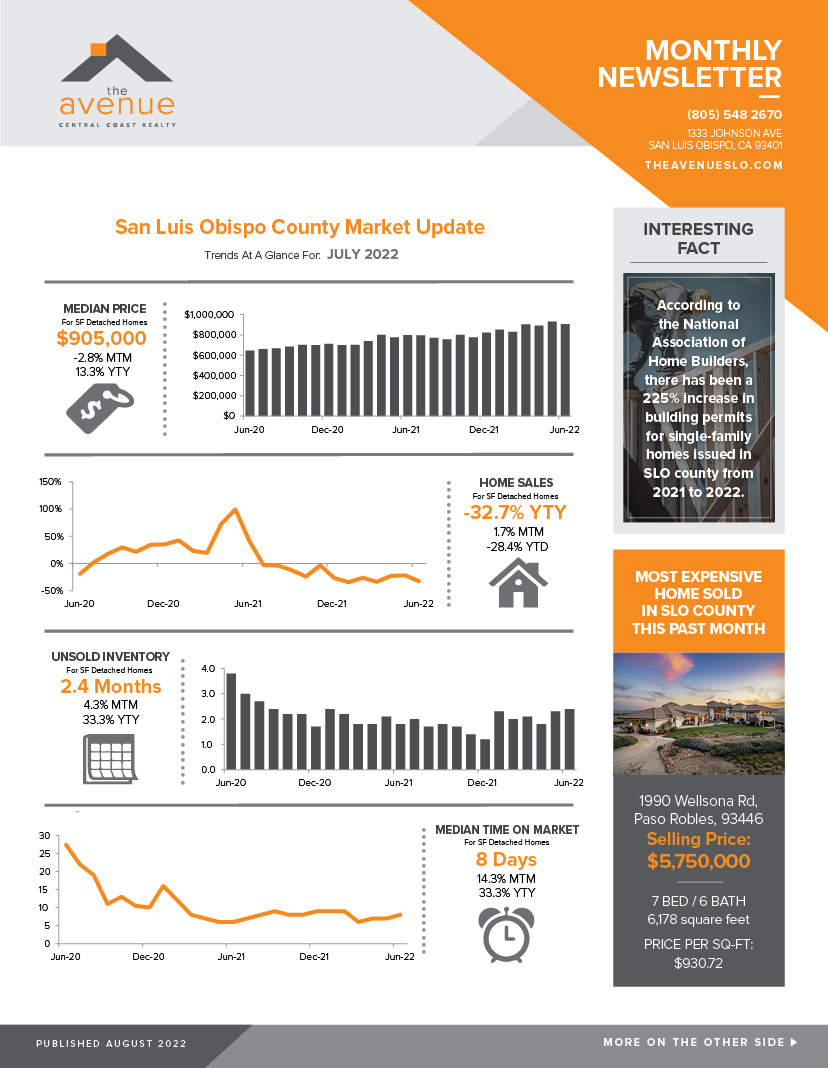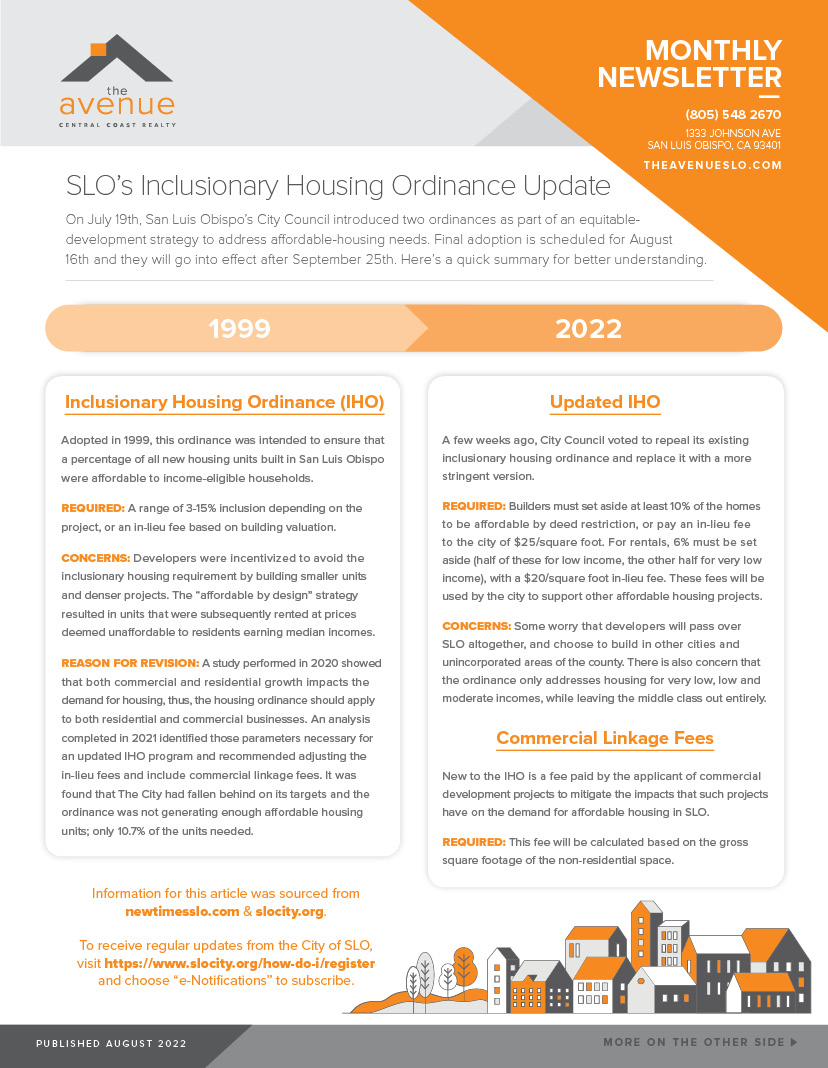SLO County Market Update / Types of Mortgages
The first step for any potential homebuyer, is finding the loan that works best for their specific situation. Understanding your options and finding a mortgage professional to guide you through the process is a critical step in the biggest financial decision many people will ever make; buying a home.
Fixed Rate Mortgage
A fixed-rate mortgage is the most common type of mortgage, representing 75% of all home loans. The interest rate remains the same over the life of your loan, which means your monthly payment also stays the same. Typically, terms run 15 or 30 years.
Pros: Provides the borrower with more predictability over the lifetime of their loan. The borrower is protected if interest rates suddenly rise.
Cons: Generally pay more interest over the length of the loan tern. When rates are high, qualifying for a loan is more difficult because the payments are less affordable.
Who is this for: If you plan to stay in your home for at least 5-7 years and want to avoid potential changes in your monthly payment.
Adjustable Rate Mortgage (ARM)
An adjustable-rate mortgage has fluctuating interest rates that can go up or down with market conditions. They usually have a fixed rate for a certain number of years before they change to a variable interest rate for the remainder of the term.
Pros: ARMs typically start with a lower interest rate than fixed-rate mortgages, so an ARM is a great option if your goal is to get the lowest possible rate, saving a substantial amount of money on interest payments.
Cons: The initial interest rate won’t last forever. After the initial period, your payment can fluctuate, which can make it difficult to factor into your budget.
Who is this for: If you don’t plan to stay in your home for more than a few years, an ARM could save you money.
Jumbo Mortgage
These loans fall outside of FHFA limits. They’re more common in high-cost areas like San Francisco, LA or New York City, where home prices well exceed conventional loan limits.
Jumbo loans are typically available with either fixed or
adjustable rates and they come with a variety of terms.
Pros: Allows the borrower to buy a more expensive home.
Cons: Because jumbo loans are riskier for lenders, they may require more strict guidelines to qualify for. Some examples being a lower “debt-to-income” ratio, down payment up to 20%, a credit score as high as 720 to qualify, and “reserves” of 6-12 months worth of the housing payment (in your bank account after you purchase the home).
Who is this for: If you need to finance a sum of money larger than the latest conforming loan limits, a jumbo loan is your best bet.
Government Insured Mortgages
The U.S. Department of Agriculture (USDA loans), the Federal Housing Administration (FHA loans), and the U.S. Department of Veterans Affairs (VA loans) all back mortgages.
Pros: Allows for lower credit scores and down payments.
No mortgage insurance or down payment required for VA loans.
Cons: Borrower must live on the property. Loan limits on FHA loans are lower than conventional mortgages, limiting potential inventory to choose from.
Who is this for: If you can’t qualify for a conventional loan due to a lower credit score or limited savings for a down payment, FHA-backed and USDA-backed loans are a great option.
For military service members, veterans and eligible spouses,
VA-backed loans are often better than a conventional loan.
Interesting Fact
Staged homes bring in 17% more and sell 87% faster, than non-staged homes.




